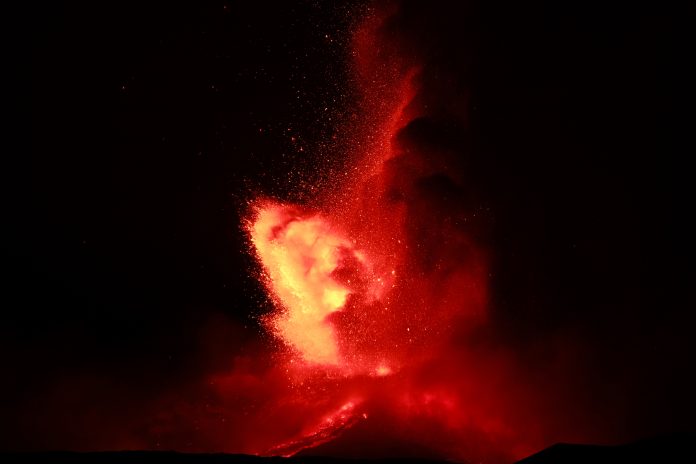The study, published in Nature Geoscience, says chains of volcanoes both created and removed carbon dioxide, stabilising Earth’s temperature – but “the results do not mean that nature will save us from climate change”
Recently, the IPCC report clearly defined ongoing climate change as definitively caused by human activity. From increased carbon emissions to the melting of the glaciers, human activity pushed nature beyond the natural capacity to balance itself.
Now, scientists at the University of Southampton reveal that chains of volcanoes created and absorbed carbon dioxide from the atmosphere – effectively stabilising Earth’s temperature.
They looked at a time period of 400 million years, examining the way that the land, oceans and atmosphere changed throughout.
Martin Palmer, Professor of Geochemistry at the University of Southampton and co-author of the study, said: “It’s a balancing act.
“On one hand, these volcanoes pumped out large amounts of CO2 that increased atmospheric CO2 levels. On the other hand, these same volcanoes helped remove that carbon via rapid weathering reactions.”
Firstly, why is the Earth’s surface so important?
It is where chemical weathering takes place.
Natural break-down and dissolution of rocks at Earth’s surface is called chemical weathering. It is critically important because the products of weathering (elements like calcium and magnesium) are flushed via rivers to the oceans, where they form minerals that lock up CO2.
Lead author Dr Tom Gernon, Associate Professor in Earth Science at the University of Southampton, and a Fellow of the Turing Institute, said: “In this respect, weathering of the Earth’s surface serves as a geological thermostat.”
This feedback mechanism regulates atmospheric carbon dioxide levels – essentially balancing the global climate, over huge periods of time.
Secondly, does this mean the Earth will balance itself?
No.
Things are significantly different, according to the research team. The Earth will need a huge amount of help to restore temperature balance.
Dr Gernon said: “Unfortunately, the results do not mean that nature will save us from climate change.
“Today, atmospheric CO2 levels are higher than at any time in the past 3 million years, and human-driven emissions are about 150 times larger than volcanic CO2 emissions.
CO2 levels are higher than at any time in the past 3 million years
“The continental arcs that appear to have saved the planet in the deep past are simply not present at the scale needed to help counteract present-day CO2 emissions.”
Finally, what can scientists do now to stop climate change?
Artificial chemical weathering could help to remove carbon.
If rocks are crushed and spread across land, chemical reaction rates will speed up. This means that carbon could be absorbed from the atmosphere, especially if calc-alkaline volcanic materials are used. This means anything containing calcium, potassium and sodium.
Dr Gernon further commented: “This is by no means a silver bullet solution to the climate crisis – we urgently need to reduce CO2 emissions in line with IPCC mitigation pathways, full stop.
“Our assessment of weathering feedbacks over long timescales may help in designing and evaluating large-scale enhanced weathering schemes, which is just one of the steps needed to counteract global climate change.”











